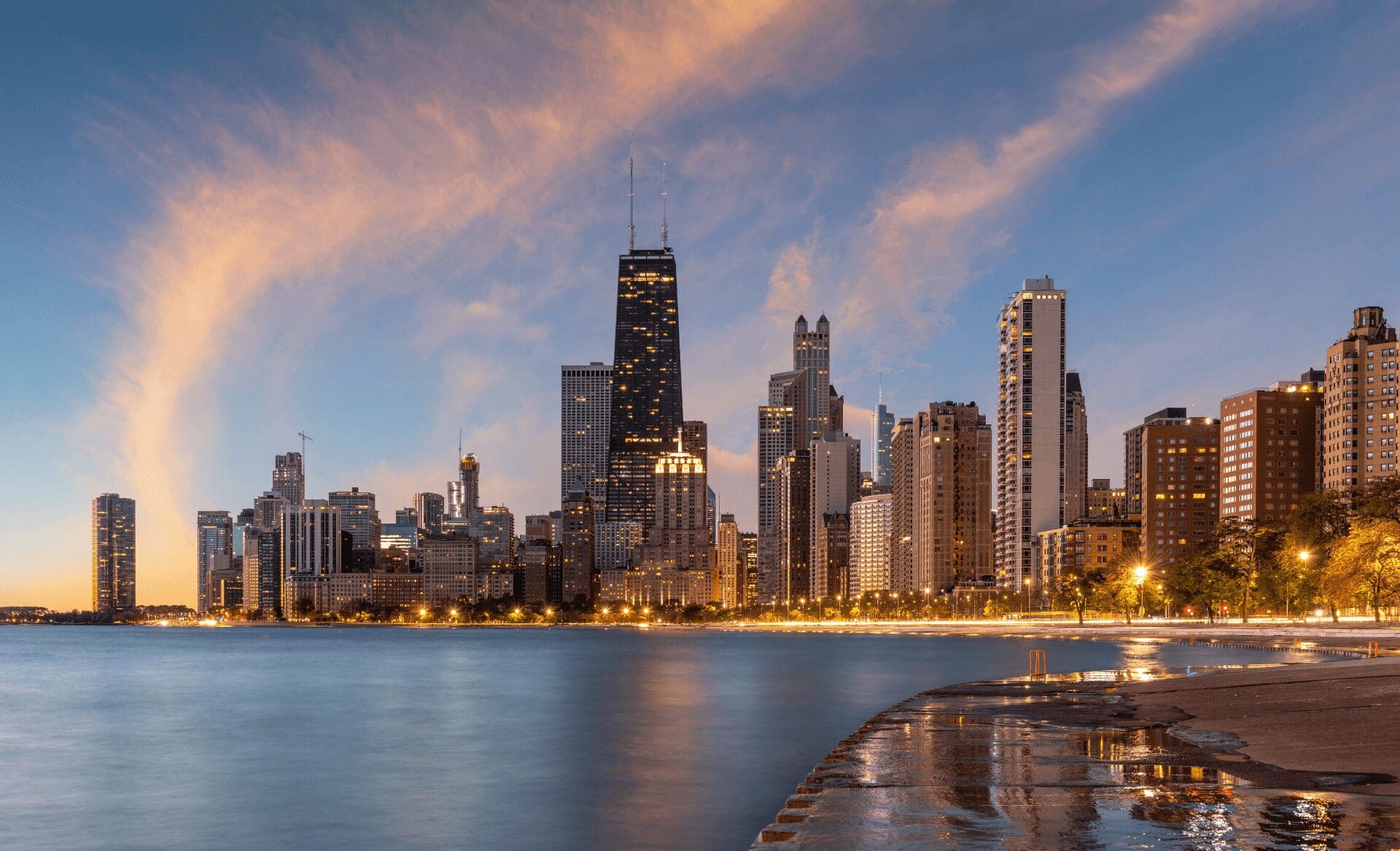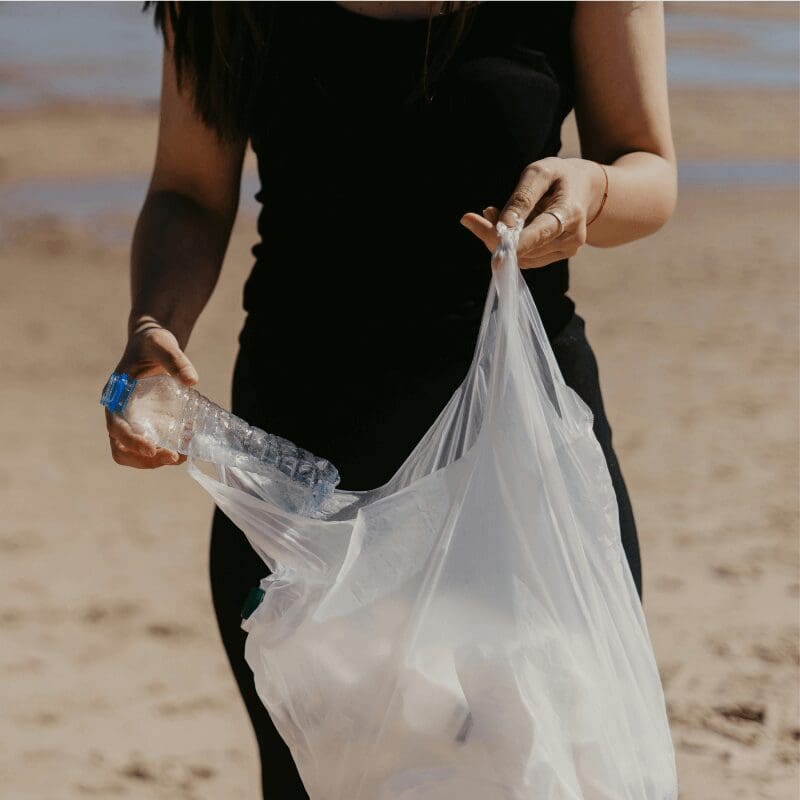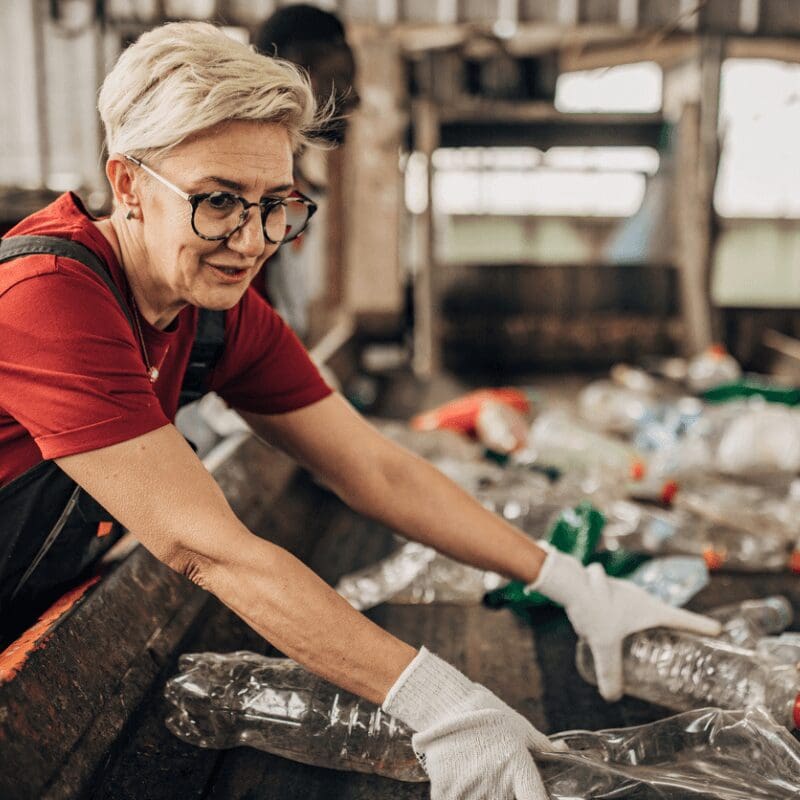How Chicago’s Business Plastic Waste is Affecting the Oceans

As supporters of One Bottleless Nation, we here at Office H2O understand the importance of sustainability and environmental responsibility. However, our collective efforts need to address one critical issue more aggressively: plastic waste, especially within our urban cities here in the Midwest. Chicago, for example, is a large metropolitan area with a population of roughly 2.67 million people. And with all those people come high volumes of plastic use and waste.
Chicago’s thriving business sector, while a cornerstone of economic prosperity, is also a significant contributor to plastic pollution, impacting our oceans in ways that demand our immediate attention and action. As a Chicagoan resident or business, you might not notice the impact as much, but in a far-off place, your plastic waste is having a big impact.
The Hidden Impact of Plastic Waste
Every day, businesses across Chicago generate vast amounts of plastic waste. From packaging materials to single-use containers, the convenience of plastic has led to its pervasive use. However, the lifecycle of plastic doesn’t end when it leaves our hands. In fact, this is where the real problem begins.
Plastic waste from Chicago often finds its way into water systems through street runoff, blown trash, or poorly discarded waste. Eventually, this waste ends up in our rivers and streams, traveling all the way to the oceans with little disruption. This journey might seem indirect, but it’s a well-trodden path facilitated by wind, rain, and inefficient waste management systems.
Once in the ocean, plastic wreaks havoc on marine ecosystems. Sea creatures ingest or become entangled in plastic debris, leading to injury or death. Furthermore, plastics break down into microplastics, tiny particles that are virtually impossible to remove from the water, causing long-term environmental damage. Eventually, these microplastics settle on the ocean floor, becoming food sources for bottom feeds. When the time is right, those bottom feeders become part of the larger food chain, carrying with them the plastic they’ve ingested. Sounds yummy, right?
Chicago’s Contribution to Ocean Pollution
Despite our best efforts to recycle, a significant portion of plastic waste still ends up in landfills or, worse, the natural environment. Recent estimations suggest that anywhere between 5% to 6% of plastics in the United States are recycled, and Chicago is no exception to this troublingly low statistic.

In 2022, it was estimated that only 9.6% of the city’s waste (cardboard, plastics, paper, etc.) was recycled. The remaining plastic waste either ends up in landfills, where it can take centuries to decompose, or it escapes into our waterways.
But experts like Katie Bailey, chief policy officer with the Association of Plastic Recyclers, suggest that our low recycling rates aren’t due to a lack of effort—they’re due to a lack of expensive infrastructure. While the cost of implementing sustainable recycling practices is more feasible in urban areas, that’s not always the case for rural areas and counties with smaller budgets.
The Cost of Recycling
Recycling involves a complex and multifaceted process. It starts with the collection of recyclable materials from households, businesses, and community drop-off points. These materials are then transported to recycling facilities, where they undergo sorting. Advanced machinery and manual labor are used to separate plastics by type and color. Once sorted, plastics are cleaned to remove any contaminants, such as food residue or labels, which can degrade the quality of the recycled product.
After cleaning, the plastics are shredded into small flakes or melted to form pellets, which are then sold to manufacturers to create new products. This final stage completes the recycling loop, turning waste into valuable raw materials for new items. However, despite its apparent simplicity, recycling is an expensive endeavor for just about any city or town.
The high costs associated with recycling stem from several factors. Firstly, the infrastructure required for collection, sorting, and processing is capital-intensive. Purchasing and maintaining recycling trucks, bins, and sorting machines involves substantial upfront and ongoing expenses. Additionally, labor costs for sorting and processing recyclable materials can be significant. Another key challenge is market fluctuation; the value of recycled materials can vary greatly, impacting the economic viability of recycling programs.
Moreover, contamination of recyclables can make entire batches unusable, thus increasing the processing costs. Cities also face logistical challenges in ensuring efficient and effective collection systems. While the environmental benefits of recycling are undeniable, the associated costs highlight the need for robust economic strategies and innovative approaches to make recycling more affordable and sustainable in the long run.

Leading the Change: What Can We Do?
At Office H2o, our business has the power and influence to lead by example. We’ve implemented our own plastic-reduction initiatives and give back to our local communities in ways that promote plastic-free living. Still, there’s more to do!
So, if you’d like to think ahead at what your business can do to prevent more plastic waste, here are actionable steps you can take to contribute to the health of our oceans:
1. Adopt Sustainable Practices
Transitioning to sustainable business practices is crucial. This includes reducing reliance on single-use plastics, opting for biodegradable or reusable alternatives, and encouraging suppliers and partners to do the same. Simple changes, like switching to paper packaging or offering incentives for using reusable containers, can significantly reduce plastic waste.
2. Implement Effective Recycling Programs
Ensure that your business has a robust recycling program in place. Educate employees about the importance of recycling and how to do it correctly. Partner with local recycling facilities to ensure that recyclable materials are processed efficiently and do not end up in landfills or waterways.
3. Support Legislation and Initiatives
Advocate for and support legislation aimed at reducing plastic waste. Engage with local government initiatives and participate in community clean-up events. By being vocal and active in these efforts, we can influence policy changes that benefit the environment.
4. Innovate and Collaborate
Invest in research and development of new materials and technologies that offer sustainable alternatives to plastic. Collaborate with other businesses and organizations to share resources and strategies for reducing plastic waste. Collective action amplifies our impact and drives industry-wide change.
5. Educate and Engage
Raise awareness about the issue of plastic waste among employees, customers, and the community. Use your platform to educate and inspire others to take action. Host workshops, seminars, and campaigns to highlight the importance of reducing plastic waste and protecting our oceans.
Our Shared Responsibility
The issue of plastic waste is not one that can be solved overnight, nor can it be addressed by a single entity. It requires a collective effort from all of us—businesses, consumers, and policymakers alike. As members of the Bottleless Nation, we have a unique opportunity and responsibility to lead this change.
Every small step we take adds up to a significant impact. By adopting sustainable practices, supporting recycling initiatives, and educating our communities, we can reduce the flow of plastic into our oceans. This is not just about preserving the environment for future generations; it’s about ensuring the health and well-being of our current one.
Start With Ditching the Jug
Are you ready to take action to reduce your company’s plastic waste and usage? How about we start by helping you get rid of the 5-gallon plastic jug water cooler? We’re pretty confident you hate storing and changing those jugs anyway, so why not let Office H2O replace it with something better? Our bottleless water and ice coolers require no heavy lifting and always provide a steady flow of clean, cold, refreshing water and ice. And the best part is there’s ZERO plastic waste like jugs or single-use bottles.
So, contact our team, and let’s figure out which unit is right for you! Call (866) 621-6910 today.
